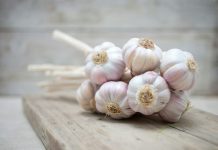
Scientists from Penn State found that people with Parkinson’s disease who eat more flavonoids—compounds found in richly colored foods like berries, cocoa and red wine—may have a lower death risk.
Additionally, they found that eating more flavonoids before being diagnosed with PD was associated with a lower risk of dying in men, but not in women.
The research is published in the journal Neurology and was conducted by Xinyuan Zhang et al.
According to the Parkinson’s Foundation, more than 60,000 people are diagnosed with PD each year, and more than 10 million people worldwide are living with the disease.
The disease is caused by the brain not making enough dopamine and leads to tremors, stiffness and problems with balance.
In the study, the team analyzed data on 599 women and 652 men who had recently been diagnosed with PD.
Participants were asked how often they ate certain flavonoid-rich foods, such as tea, apples, berries, oranges and orange juice, and red wine.
The team found that when people who had already been diagnosed with Parkinson’s disease (PD) ate more flavonoids, they had a lower chance of dying than those who did not consume as many flavonoids.
After controlling for other factors, the researchers found that the participants in the group of the highest 25 percent of flavonoid consumers had a 70 percent greater chance of survival than the lowest group.
Additionally, eating more flavonoids before being diagnosed with PD was linked to a lower risk of death in men, but not in women.
The team noted that consumption of wine should not exceed the amount outlined in the Dietary Guidelines for Americans, which is one drink per day for women and two for men.
The researchers also analyzed the effects of individual flavonoids. They found that those in the top 25 percent consumers of anthocyanins—found in red wine and berries—had a 66 percent greater survival rate compared to those in the lowest 25 percent.
Additionally, the top 25 percent of consumers of flavan-3-ols—found in apples, tea, and wine—had a 69 percent greater survival rate compared to the lowest 25 percent.
While the study did not examine the underlying mechanisms that may cause this association, they have proposed some theories.
Flavonoids are antioxidants, so it’s possible they could be lowering chronic neuroinflammation levels.
It’s also possible they may interact with enzyme activities and slow neuron loss and could protect against cognitive decline and depression, which are both associated with higher mortality risk.
If you care about Parkinson’s disease, please read studies a major cause of Parkinson’s disease, and simple daily habit may reduce the risk of Parkinson’s disease.
For more information about brain health, please see recent studies about treatment that may eliminate Parkinson’s disease, and results showing Parkinson’s disease is an autoimmune disease partly.
Copyright © 2022 Knowridge Science Report. All rights reserved.



